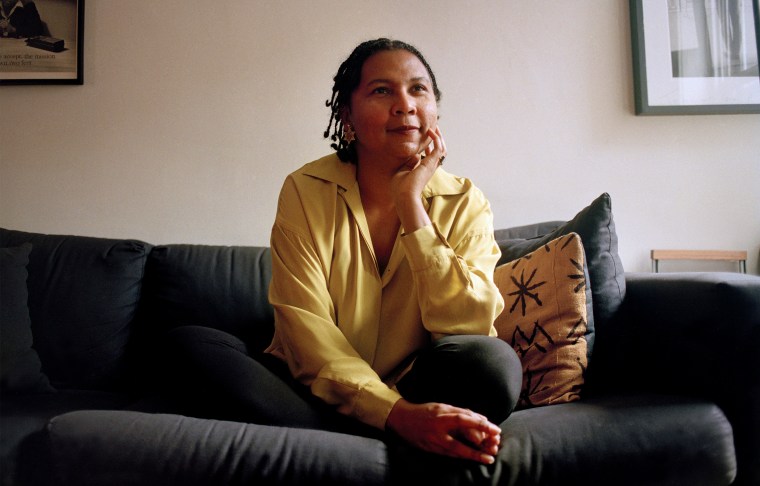For generations of avid readers, academics, freedom fighters and the marginalized, bell hooks’ books make up the canon that points the way forward on the road to freedom. Author of 40 books, her first, “Ain’t I a Woman: Black Women and Feminism,” illuminated the effects of racism and sexism on Black women and challenged the racism of white women in the feminist movement. An intersectional feminist, she showed how class, race, gender and sexual identity were interconnected and how they contributed to the oppression of women, especially Black women. In the words of one former student, the writer Min Jin Lee, the book was a “radical and relevant work of political theory.”
There is a moment of breathlessness when a luminary leaves.
Born Gloria Jean Watkins in 1952, hooks, a foundational Black feminist, writer, professor, activist and truth teller, died Wednesday in her native Kentucky where she served as the distinguished professor in Appalachian studies at Berea College. She was 69.
There is a moment of breathlessness when a luminary leaves, an emptiness that feels as though the words that they wrote are suspended in time. That is the feeling that rings true for me and many others today upon hearing the news of her death.
hooks adopted the name in honor of her maternal great grandmother, Bell Blair Hooks, and she insisted on using lowercase letters, she said, to shift the focus away from herself and onto her thoughts and ideas. The evidence of her groundbreaking ideas and theories can be found in the corpus of her writing. The high regard with which she was held is apparent in the numerous invitations to speak and honors she was given throughout her career, including the bell hooks center at Berea College.
If there is a book of bell hooks that transcended racial and gender boundaries, it’s 1994’s “Teaching to Transgress: Education in the Practice of Freedom.” Its publication served as a guide to liberation for teachers across the spectrum. Influenced by Paulo Friere’s work on engaged pedagogy, “Teaching to Transgress” focused on how feminist strategies influence teaching and how being an embodied person in a classroom is crucial to student learning and freedom. I’m among the generation of teachers who were influenced by her thinking and by her admonition that “popular culture is where the pedagogy is, where the learning is.”
While bell hooks’ books have been instrumental to so many people, thinkers, activists, academics and teachers, she was sometimes the subject of criticism, most notably for her harsh comments on Beyoncé’s visual album Lemonade. I was one of the people who disagreed with her and was not happy about what she had written, and I said so on Twitter. It was an interesting moment, one that demonstrated how a newer generation saw feminism and Beyoncé’s position in it differently than hooks did.
She was sometimes the subject of critique, most notably for her harsh comments on Beyoncé’s album Lemonade.
While hooks’ comments may have rankled, in retrospect, I think they proved the continuation of her radical thinking and care. It was a moment, like so many others in her career, when she engaged the moment fully and put forth her ideas. And we learned we could disagree with her. Disagreement, after all, does not have to mean disagreement with or disrespect for a thinker’s whole body of work. Looking back, hooks’ criticism of Beyoncé was a moment to embrace how feminists, specifically Black feminists, embrace other paradigms of feminist power.
The empty feeling that comes with news of her death is followed by the comforting thought that, despite her untimely transition, her words still ring love, freedom and truth. Generations to come will find bell hooks’ words and ideas, and those words and ideas will continue to live and breathe life, even though the author’s breath is gone. That is her legacy to us.

